If you watch movies or television shows with any degree of regularity, there’s a good chance you’ve seen John Rhys-Davies’ work.
The Welsh actor has over 200 film and TV credits to his name; he tagged along with Harrison Ford as Sallah in the Indiana Jones movies, played the dwarf Gimli in all three of Peter Jackson’s Lord of the Rings films, and played the nefarious General Pushkin in the 1987 Bond movie The Living Daylights.
He’s also appeared in countless television shows over the past four decades, including Shogun, CHiPs, Robin Hood, Great Expectations, The Untouchables, Murder She Wrote, Sliders, and most recently, the ABC show Once Upon a Time.
I got the chance to catch up with Rhys-Davies from his hotel room in Brussels to discuss the DVD release of one of his latest films, Return to the Hiding Place. The film tells the true story of Corrie ten Boom, a Dutch Christian watchmaker who sheltered dozens of Jews from certain death during World War II. The youngest of those helped by ten Boom became her “teenage army,” a sub-group within the Dutch resistance that helped to fight back against the Nazi regime.
Rhys-Davies plays Eusi, one of the Dutch Jews sheltered by ten Boom during the war. The film, a spiritual sequel to the 1975 Jeanette Clift-Julie Harris-starrer The Hiding Place, won a number of awards upon its release, including Best Jury Feature at the Bel Air Film Festival and the Audience Choice Award at the San Antonio Independent Christian Film Festival.
I wanted to talk to Mr. Rhys-Davies about the film, but I also wanted to ask him about a recent interview he did with podcaster Adam Carrolla, in which he decried the “extraordinary silence” of the West in combatting radial Islamic terror, and fingered political correctness as the prime culprit. With so few actors willing to speak out about weighty issues like moral relativism and political correctness, Rhys-Davies sounded like an actor who actually had something real to say.
I also spoke with the actor about his upcoming MTV fantasy series The Shannara Chronicles, and solicited his prediction for who could play the next James Bond. The following interview, taken from our 90-minute phone conversation, has been condensed for readability, but has not been otherwise edited.
*************************************************************************************
Breitbart News: So, I just finished watching Return to the Hiding Place. What a great film. And you were great in it.
John Rhys-Davies: It is a good film, I think. It’s a morally strong film. It poses that question that all of us, who in our mind’s eye see ourselves as doing the right thing, should ask ourselves: if the land was occupied, if, by keeping our noses clean, we could get by, would we risk not just our livelihood but our lives for those unpopular aliens in our midst?
I think it’s a great story about eternal moral issues. These were the bravest people, and that was the greatest generation. They knew what evil was, and they knew what they had to do to end it. And they did. A wholly successful war. Fascism was destroyed. Japanese imperialism was destroyed. Great, great achievements; the world became a better place.
(Rhys-Davies as Eusi in Return to the Hiding Place)
BN: One of the things that really struck me was the quote in the beginning and then again at the end: “As the will of the students goes, so goes the will of the nation.”
JRD: I think those were very special times. I think it may have been true for them, but I’m not really sure it’s true for us today, is it?
BN: Well, is it not? It seems like progressivism has taken over institutions of higher learning in the United States.
JRD: Ideologies have always fought for the young mind. But in the end, except for some gullible people and those minds that are willing to be manipulated, real life sorts out our views. I mean, I remember being a radical socialist until quite disgracefully late on, probably until my 27th or 28th year. Certainly, by the time I had actually become responsible for other people, and making sure that other mortgages were paid other than just my own, a measure of real pragmatism had entered into my life.
I think we can allow the young to range in their reading and range in their thought. But I think there are people who, one way or the other, really try to influence them to ideologies that may be quite destructive and counter the drift of society.
BN: I was reading about Peter Spencer’s Orange Resistance project. It’s a project that he started in conjunction with the film to raise awareness about the parallels between the Holocaust and what’s happening in Iraq and Syria now, with ISIS killing Christians en masse. Are you involved in that?
JRD: Well, of course, like any of us, I would join with him in that without any reservation. It is disgraceful that Christians are being persecuted and the West is doing little or nothing to stop them. And not just persecuted, but killed. And of course, slavery is back.
This drives me to a fury. Getting rid of slavery is one of the great successes of Western European Christian civilization. And let me go a little bit further. I am shocked, for instance, that the black community, which has, historically, a recent experience of slavery in their ancestry, is not raging at this reemergence of slavery. Have we become so immune to outrage that we have lost our passion against this abomination? And it is an abomination.
And let me go further. If there is an ideology that even obliges any of us to tolerate the notion that slavery is a legitimate form of expressing God’s will, then my suggestion is, there is no place in Western civilized society for anyone even prepared to countenance that. It seems to me it’s one of those absolute lines where people must make a choice. If my faith or my world belief, or the tradition in which I’ve grown up, condoned slavery or made me hesitate to condemn it, I would have to ask myself, ‘Which civilization am I for?’ Because frankly, there is no place in Western society for anyone who can tolerate slavery.
(Rhys-Davies as Sallah in Raiders of the Lost Ark)
BN: You don’t usually hear an actor who is articulate and well-spoken about what’s happening in the world with regard to religious persecution. It’s mostly about what it was like working with their hot co-star, or what the craft services were like on set.
JRD: My fellow actors have every right… That’s what we call free speech, isn’t it? And we should glory in free speech. The damnable thing about political correctness is that it’s making us all shy of speaking out. We fear to throw out ideas that may in themselves sound stupid, but may have the germs of a possible alternative way of solving problems. We’re all so scared of being labeled. ‘He’s a racist, he’s a neo-fascist.’ That belief is simply not consonant with our modern liberal way of thinking. And I understand politicians being stymied by it.
But let me do the unfashionable thing and actually defend politicians. The Internet has given a voice to every bitterness, every prejudice, every examination of every statement in the hunt for something to be offended by. And political careers can be destroyed, as can actors’ careers be destroyed, but actors’ careers are really less important than real political leadership.
BN: Well, it depends which politician.
JRD: Well, there are very good men who lie awake at night trying to see a way through these problems that beset our world. And it’s too easy to dismiss them with a sneer as just being “politicians” or the “military industrial complex” or some other trite observation. I’ve met military men of your nation who I deeply respect for their constant, enduring inquiry and their willingness to seek for any way to counter problems that might provide a different outcome. Thinking about the unthinkable is an important part of the jobs of those who would protect us, and it’s something that all of us should practice doing more often.
BN: You recently did an interview with Adam Carrolla where you talked about political correctness. You said, “We’re living in an age where politicians don’t actually say what they believe.” So my question is, now, we have someone running for president, who, at least on the face of it, does sound like he’s saying what he believes, in Donald Trump. Do you think that someone like Trump, even if not Trump himself necessarily…
JRD: Let me cut you off. I do have my opinions, but it is not my job to criticize, and interfere with, and suggest and be partisan in your electoral processes. You guys allow me to visit your country, and I’m very grateful for it. You allow me to work there sometimes, and I’m very grateful for that. But it’s not courteous of me to get partisan in that particular way. It’s not right.
What I will say is this: Throughout the West, there is an abject failure of vision and leadership, an abject failure to understand that certain values have to be defended. And this is certainly true with my government, as it may well be true with yours. In the end, our leaders must be judged by what they stand up for as much as what they fail to stand up for. Of my own government, my contempt is considerable. But I won’t engage in any partisan criticism of yours.
There’s nothing more irritating than some damned foreigner telling you how you should vote (laughs). Just think deeply and try to establish what is right, and what is practical, and what is necessary, and what will make the world a better place. And select your man or woman, and keep his foot to the point of a candle.
(As General Leonid Pushkin, looking down the barrel of James Bond’s gun in The Living Daylights)
BN: In a general sense, do you believe it’s become politically incorrect to be patriotic? On the left, it seems it’s become somewhat unfashionable to love one’s country.
JRD: I think that chauvinism is one thing and patriotism is another. I’m a patriotic Welshman, I’m not a chauvinistic Welshman. I’m a patriotic Briton, I’m not a chauvinistic Briton. I love the United States of America. I do believe it is still the last and best hope of mankind. It is a nation founded in such an intellectually elevated manner, with such extraordinary principles, by, dare I say and get a little chauvinist kick in there, by some of the smartest Englishmen that ever walked the Earth! (laughs).
You should be proud of your country. That doesn’t necessarily mean proud of your country to the exclusion of respect for other people’s countries. We’ve got to value our strengths, and we’ve got to be aware of our weaknesses and seek to correct them.
But let me talk about the European example because I think it gets away from any element of partisanship. We got conned into joining the Common Market. Now, there’s nothing wrong with joining a good, sensible common market, but it was sold to us as a market and not as a political system. And the whole emphasis and the whole thrust of our ruling classes has been to emphasize a closer union, a “United States of Europe” that will stand up to America and to Russia and whatever. And in doing this, we have belittled all of the little virtues of individual nations, and when you stop being patriotic about Britain, for instance, you create a vacuum. And what we’ve seen is Scottish nationalism coming along. We have such an untalented, spectacularly dumb Prime Minister, who allowed a debate to take place that conceivably could have split the United Kingdom into two countries. We would have lost one-third of our land. And this, in a nation of 70 million people, to a vote of about 3 million to 4 million. That is how dumb the British government is. It was a very close-run thing. It’s not over yet.
But the real point is, if you play down the things that bind you, you weaken a society. If you do not believe that America is great, if you’re not allowed to say ‘My country ’tis of thee, sweet land of liberty,’ you will find sectional forces in your country trying to break it down. All countries have centrifugal forces trying to tear them apart. The way that you hold your society together is because you have that extraordinary document, the Constitution. Be very wary of people who seek to change the Constitution because it is the glue that holds your disparate peoples together.
Western Christian civilization, of which you’re a part, is one of the great glories of mankind. These are the things we stand for. We stand for liberty, liberty of association, freedom of speech. We stand for the equality of everyone in our society before the law, men as well as women. We could make a list of all the things. But let’s get back to respecting these things. These are the glories of our ancestors. These are what thousands of our ancestors died to protect and preserve. And if we allow those things to go because we are afraid of being politically incorrect, or of hurting somebody by suggesting that perhaps their value system may not be quite as nice as ours, then we are fools, and ultimately, scoundrels.
Nobody wants our self-perceived virtues to be trumpeted in everyone’s face. But democracy is better than any other system that we know. One man, one vote is a blastedly difficult thing to make work. But it is better than one man, all the votes, and everybody else doing exactly what they’re told. The things that we believe in, I still believe are the best solutions to mankind’s problems, and I’m darned if I’m going to allow people to come along and poo-poo them.
BN: I know you don’t want to comment on any American politics, but you have mentioned that democracy is not compatible with sharia law and the ideologies that govern these radical groups. One of our presidential candidates, Dr. Ben Carson, who is not a career politician, said recently that Sharia law and the Constitution of the United States are not compatible, and because of that, a Muslim should not become president of the United States. I know you don’t want to weigh in on the politics, but he got raked over the coals pretty well for that comment. It seems obvious that the media has now taken a firm stand to be on the politically correct side of things.
JRD: Well, I think I would probably shake his hand. If you believe in the rule of law, in Constitutional law, then you can’t do that and believe in Sharia. A man cannot serve two masters. If you’re going to be President, you serve the people and the Constitution of the United States. You do not serve the political and religious laws of another system.
BN: You recently had experience exploring the devastation of the Holocaust for your new film. With the migrant crisis in Europe happening right now, do you see parallels between that and the fleeing of Jews during World War II?
JRD: There is a parallel. And if we’re morally consistent, we must recognize it. I think where people are genuinely fleeing from persecution, they have a right to haven. Unfortunately, in Europe, it’s not quite as simple as that, because most, I would think probably four in five of the migrants trying to get in to Europe at the moment, are economic migrants. They are not really fleeing from persecution, they’re just coming to get a better life. You can’t blame them for that, but the numbers in which they’ve come will change Western societies.
And for that reason, we’ve got to come up with some smart things. The thing is, we’re so damned afraid of being branded as racist, or migrant-haters, or whatever, that we’re afraid to put up sensible suggestions. If push came to shove, there are many hundreds of islands in Indonesia that are virtually empty and could be bought. And yes, it would cost the United Nations money to supervise and support, and create a new society there for some migrants. There is no reason why migrants coming to a country should not be given temporary refuge with the understanding and assurance that they will go back to their countries. There is no reason why, for instance, we cannot be ruthlessly pragmatic and simply say, ‘This area here is a peaceful area. anyone who imperils that will have a quarter of their village or town or city obliterated. We will establish a corridor of peace, and we will kill anyone who does not accept that it it is a corridor of peace.’
Sometimes, in the words of the great Machiavelli, it is better to be feared than loved. But we are dealing with failed countries everywhere. And we’re dealing with countries that are just not providing adequate leadership. And for those countries that are producing huge numbers of economic migrants, we’re going to have to fess up some time and say, ‘Look, if you cannot keep your population together, then you lose the opportunity to govern.’
I think that one of the things that we should consider is whether we should re-impose colonial rule on failed states. Let’s look at that possibility. Above all, we’ve just got to find new solutions, we’ve got to look at absurd projections like that. When societies fail, it isn’t just enough to send in an army to redress the balance and fight that gang of gangsters that wants to take over the country. Let us try and create a better state, send some of brightest and best. At least let us have the courage to start a dialogue of ideas that may involve things that are completely unacceptable.
But the real elephant in the room, the unspoken elephant in the room, was actually said to me by a Kurdish taxi driver in Sweden two weeks ago. He said, ‘John, you’re avoiding the real issue. Why is there no peace in the Middle East? It is because of Islam.’ And since he was a Muslim, I thought that was a moment of courage and as hopeful a statement as one could expect.
But the real elephant in the room is Islam. And I’ve seen some marvelous Muslim men and philosophers and historians saying, ‘But really, it’s only because we’ve gone wrong, that this ideology is wrong, whereas philosophically, if that medieval part was suppressed…’ You know, your heart goes out to people who try and square the circle. And you know in their heart of hearts, to admit that it can’t be squared, demands so much of them.
Look, this is the problem. The problem is Islam itself. It is the elephant in the room and we’re afraid to say that we ought to look at finding a way of helping the people who’ve been enslaved by Islam, for don’t forget that in many countries, Islam is enforced on people. I think one of the debates that I’d like to see going is, how do we put Islam to the moral test of the West? If, in order to rationalize your faith, you’ve got to admit that yes, technically speaking, the holy Prophet Mohammed did justify slavery and because of that, that should apply now, you have no place in Western society. You are not a Westerner. You have no right to be part of the concerns of modern humanity. You have sacrificed it.
In the end, there have to be a number of moral, agreed certainties that we bind ourselves to observe. And if we don’t, we’ll fall apart.
(As Eventine Elessedil, in MTV’s The Shannara Chronicles)
BN: Let’s talk about you for a little bit.
JRD: Oh, yes, well it’s all about me (laughs).
BN: You’ve got about a dozen projects slated to come out in the next year. I’m not sure how you even have time for this conversation. One in particular caught my eye: MTV’s The Shannara Chronicles.
JRD: I think it’s going to be huge. It’s MTV. The only reason why I can’t say it’s definitely going to be huge is because I belong to that generation that doesn’t understand how you download things from a music channel. But I will say that everything about that production, I couldn’t second-guess it. All of the decisions that were made seemed to me to be really smart and optimal.
I’m going to Comic-Con and I think they’re going to screen the first bit of it there. I think it’s going to be hugely successful.
I can’t resist a personal note, but from “the dwarf” to “Elf king” is an interesting trajectory for an actor. I suppose what I’m really saying is, “Eat your heart out Orlando Bloom!” (laughs).
(Rhys-Davies as Gimli and Orlando Bloom as Legolas in The Lord of the Rings: The Return of the King)
BN: Are you still in touch with the Lord of the Rings cast?
JRD: We bump into each other from time to time, but we’re all working actors. Theoretically I’ve got four films to do before the end of the year. I’m finishing a script now that sort of addresses, in fiction, some of the issues that we’ve been discussing here today.
BNN: Just before I spoke to you, the new James Bond theme song came out. And I remembered that you played General Pushkin in The Living Daylights! So I wanted to ask: there’s been a lot of speculation about who’s going to take over the role of Bond once Daniel Craig is done. Do you have any predictions?
JRD: (puts on Russian accent to play Pushkin) There will always be a Bond, and he’ll always be a difficult, dangerous man. Good to be on the right side of, but very, very bad to be on the wrong side of. Dosvedanya, comrade.
I don’t know, I think Daniel’s done a fantastic job, and I’m not really sure that he’s not capable of being around long enough to do at least one or two more. But I just love the archaic sexism of the character.
We all have those stories, you know, of the solitary knight who goes up against the enemy and wins. We just love stories; and all the best stories are sort of about right and wrong, good and evil, aren’t they? It makes for a very difficult world when we say, ‘Well, we’re all wrong. We’re all evil in a way. And my beliefs are just as troublesome as your beliefs, and the fact that we oppose each other, it must just be my fault.’
And that is the curse of the modern politically correct mind, isn’t it?
Return to the Hiding Place is available now on both DVD and Amazon Instant Video.
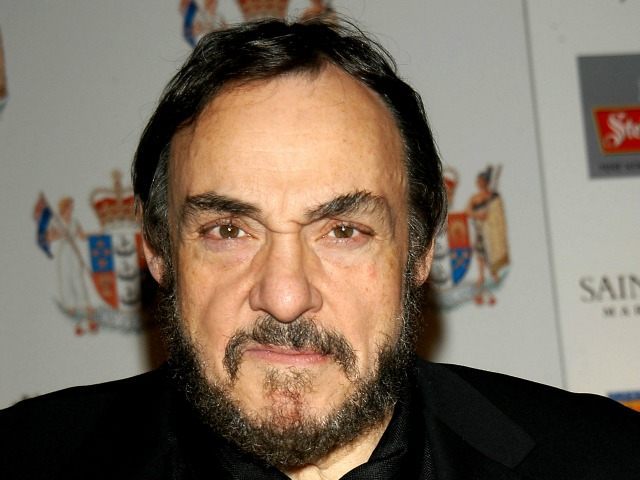
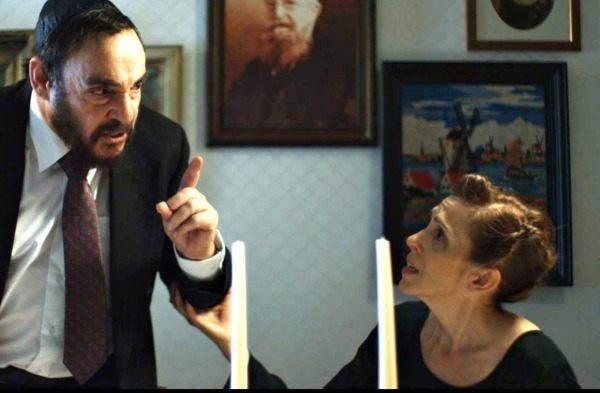
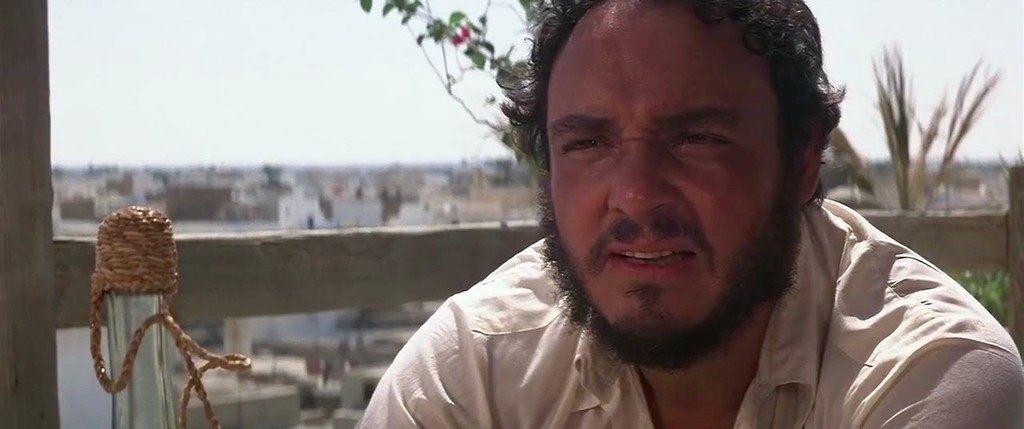
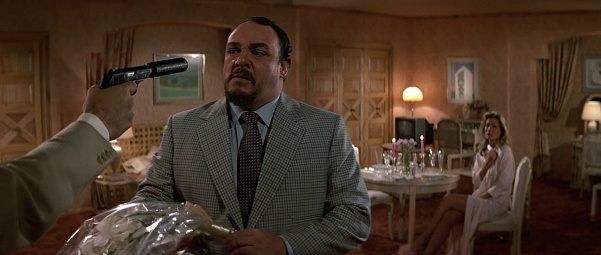
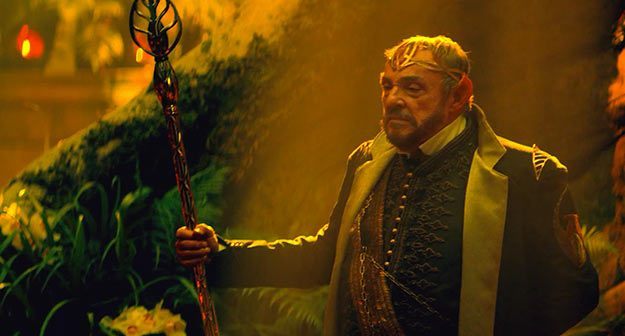
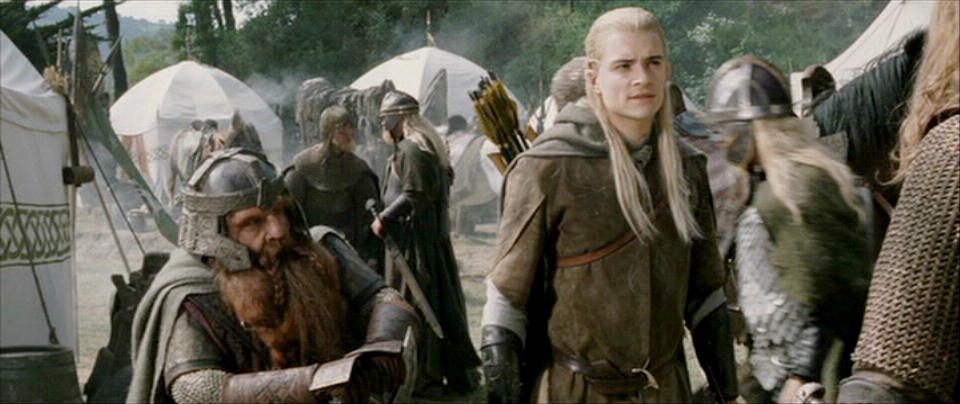
COMMENTS
Please let us know if you're having issues with commenting.